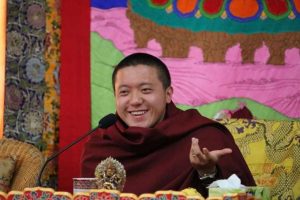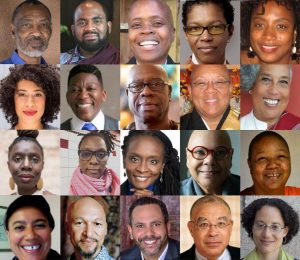
The Centre for Bhutan studies & GNH (CBS) has announced that the Kingdom of Bhutan will host the Bhutan Meditation Conference: Science, Mindfulness, and Meditation from 3–6 June, and is inviting prospective presenters to submit abstracts for consideration.
“[CBS] is pleased to announce an international conference on the theme ‘Science, Mindfulness, and Meditation’ from 3–6 June 2025 in Thimphu, to present intersections on contemplative practices and scientific research,” CBS shared with BDG.
“This will be the fifth such conference which usually focuses on Vajrayana [Buddhism],” CBS noted. “As meditation, mindfulness and mind transformation techniques exist equally in other traditions, the conference can benefit from their presentations, and it seeks a good number of presentations from other secular, religious, and indigenous traditions, such as those of Africa, Latin America, Australia, and Euro-Asia.”
Individuals and organizations wishing to present papers at the conference should submit their abstracts by 28 February and full presentation drafts by 30 April.
Suggested presentation topics for the Bhutan Meditation Conference: Science, Mindfulness, and Meditation, include:
Neuroscientific research, such as neuroplasticity and contemplative practices, the effects of meditation on brain, mapping the stages of meditative absorption, and meditation and the nervous system.
AI, including technological innovations in meditation research, virtual reality in simulated meditation experiences, and biometric monitoring.
Cultural and historical contexts, such as the influence of Buddhist meditation practice on other traditions, comparative study of esoteric Buddhist meditation and hatha yoga, approaches to mindfulness, and mindful societies and reduction of social pathology.
Psychological and cognitive impacts, such as meditation and health, mindfulness and creativity, meditation and happiness, meditation and addiction, and the subjective experiences of long-term practitioners.
Education and health, including therapeutic applications, integrative approaches to meditation and medicine, meditation in schools, supporting neurodivergent learners, and stress management.
Environment, such as meditation spaces, urban architecture for mindfulness, the role of nature and landscapes in meditation, and hygiene, diet and meditation.
Ethical and consciousness studies, including ethical considerations in meditation research, lucid dreaming, dream yoga, thukdam and death, consciousness and higher mental states, power dynamics in teacher-student relationships, and the commercialization of meditation.
“The conference will be a rigorous and pathbreaking gathering of philosophers, meditation masters, spiritual practitioners, yogins, abbots, scientists of various streams including neuroscientists, and meditation and mindfulness professionals to exchange their profound knowledges on the important subject,” CBS explained.
CBS is tasked by the Bhutanese government with conducting and coordinating research and other activities related to Bhutan’s development concept of Gross National Happiness (GNH). Remote and landlocked, and perched in the rarified air of the eastern Himalaya, Bhutan is regularly ranked among the happiest countries in the world. With a population of a little under 800,000 people, Bhutan is also one of the world’s smallest and least industrialized countries, yet it has significant experience in maintaining the delicate balance of managing economic growth in a sustainable manner, famously encapsulated in its conservative GNH approach to economic development.
The philosophy of GNH was introduced in the late 1970s by the country’s fourth king, Jigme Singye Wangchuk, informed by the kingdom’s traditional Buddhist culture. An alternative to traditional metrics for measuring national development, such as gross national product (GNP) or gross domestic product (GDP), GNH is founded on four underlying principles or “pillars” of good governance, sustainable socio-economic development, the preservation and promotion of traditional culture, and environmental conservation.
Important conference deadlines
Abstract submission: 28 February
Abstract review/selection notification: 15 March
Registration for foreign participants: 25 March
Visa application submission: 31 March
Registration for local and foreign residents in Bhutan: 30 April
Draft paper submission: 30 AprilImportant conference links
International registration
Domestic and foreign residents registration
Abstract submissions
For conference-related enquiries, please contact CBS at [email protected] or visit the conference webpage

Bhutan, nestled in the foothills of the Himalayan mountain range, and sandwiched between the two political and economic heavy hitters India and China, is the world’s last remaining Vajrayana Buddhist country. The spiritual tradition is embedded in the very consciousness and culture of this remote land, where it has flourished with an unbroken history that dates back to its introduction by Padmasambhava, also known as Guru Rinpoche, in the eighth century. Almost 85 per cent of Bhutan’s population identify as Buddhists, with Hinduism accounting for the majority of the remainder. Most of Bhutan’s Buddhists follow either the Drukpa Kagyu or the Nyingma schools of Vajrayana Buddhism.
See more
Center for Bhutan & GNH Studies
Bhutan Meditation Conference (Center for Bhutan & GNH Studies)
Related news reports from BDG
Buddhist Kingdom of Bhutan Hosts Fourth International Vajrayana Conference
142 Buddhist Nuns Receive Full Ordination at Landmark Ceremony in Bhutan
Buddhist Monks in Bhutan Join Movement to Raise Awareness of Sexual Health and Rights
Bhutan Tiger Center Set to Open New Conservation Center in August
Bhutan Nuns Foundation Announces Opening of the Training & Resource Center for Buddhist Nuns
India Presents Buddha Statue to Bhutan on the Birth Anniversary of Padmasambhava
Related features from BDG
Gelongma Dompa (dgeslongma’i sdom pa): The Blessing of Bhikshuni Ordination in Bhutan
Sing Me A Song: The Impact of Screens on a Remote Bhutanese Mountain Village
Ten Years of Empowering Female Monastics: Bhutan Nuns Foundation Extends Reach with New Training Center
















